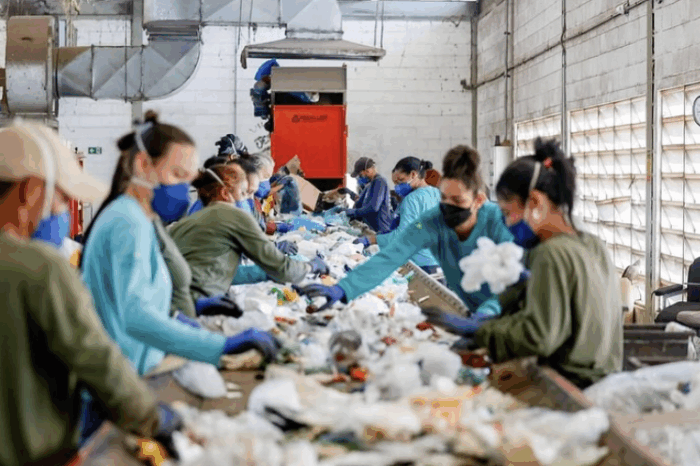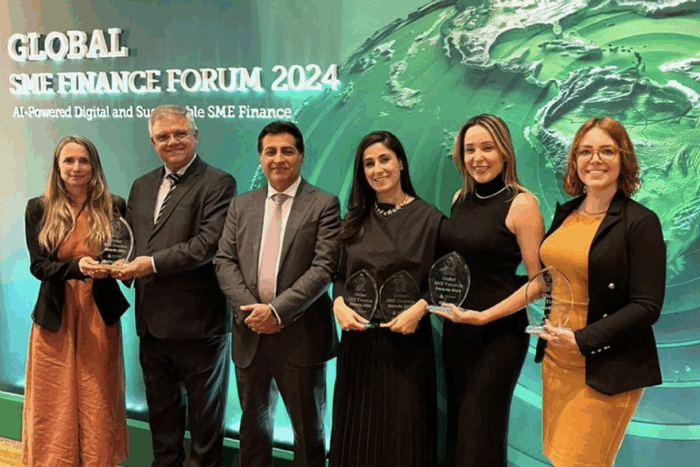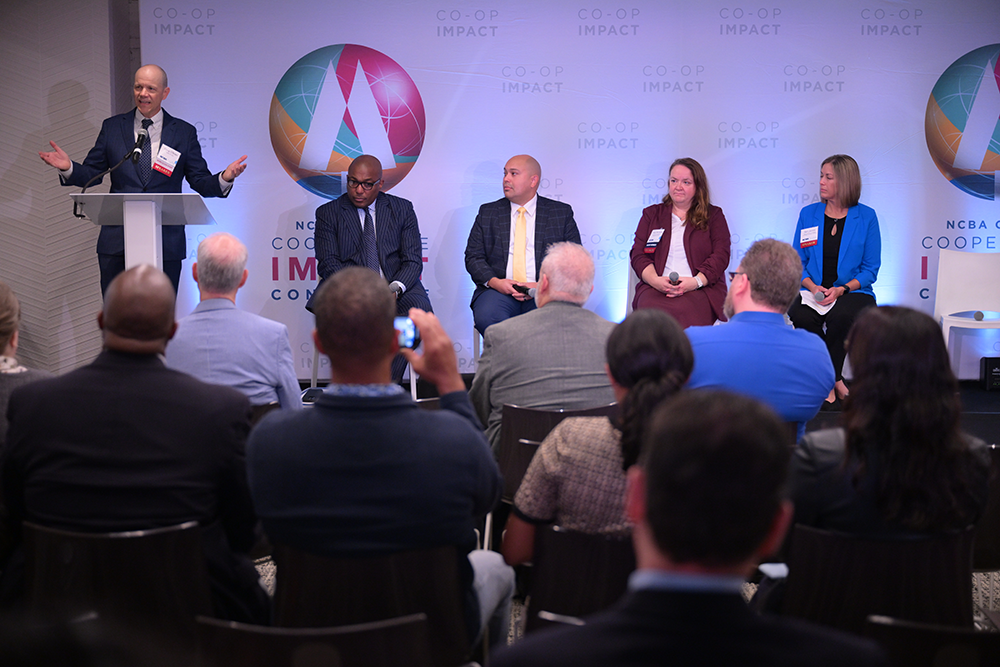
This all unfolds as we round out the Year of Cooperatives, designated under the theme “Cooperatives Build a Better World.” 2025 has been about more than celebration; it has been a call to scale up cooperative solutions for development, climate action and inclusion.
The ICA board meeting in Brasília brought cooperative leaders from across the world together at a pivotal moment. As the global apex body for cooperatives, the ICA has used the Year of Co-ops to highlight how cooperative enterprise can drive prosperity for all people. Our conversations in Brazil focused on exactly that: ensuring that cooperatives have the enabling policy, finance and visibility they need to step fully into this role.
Bringing co-op voices to COP30
A special word of thanks is due to OCB (Organização das Cooperativas Brasileiras), the national umbrella organization for Brazil’s cooperatives. OCB works to promote, defend and strengthen cooperatives across all sectors and at every institutional level. It has also become a powerful advocate for cooperative engagement in climate and environmental policy, including renewable energy and sustainable agriculture.
OCB not only hosted ICA’s Board of Directors in Brasília, it also organized a major event at COP30 in Belém to celebrate the International Year of Cooperatives and spotlight how co-ops ensure that people and communities are part of climate solutions—and benefit from new policies and markets emerging around climate change. Brazil’s role as host of COP30, deep in the Amazon region, made this especially meaningful.
On the panel where I spoke, we emphasized that when communities own the institutions that deliver energy, finance and food, climate action becomes more equitable, durable and grounded in local realities.
Strengthening co-op identity
The trip was also a chance to deepen collaboration with DotCoop. NCBA CLUSA helped establish DotCoop in 2000 and continues as one of its owners. In a crowded and sometimes chaotic digital landscape, the .coop domain remains a strategic asset—signaling shared values, trust and cooperative identity to members, policymakers and the public. Strengthening this digital “home” for cooperatives is an important part of preparing for the future.
Cooperative impact on the ground in Brazil
Some of the most inspiring moments happened far from conference rooms. In Brasília, we visited CENTCOOP, a recycling cooperative based at the Integrated Recycling Complex. CENTCOOP is responsible for nearly half of all recyclable material recovered annually in the Federal District, turning what many view as waste into both environmental value and dignified jobs. Its mission is clear: generate decent work and income for waste pickers, strengthen their role in the economy, and add value through collective commercialization and logistics.

Sicredi’s recent international recognition for sustainable finance and support for women entrepreneurs and small businesses underscores how cooperatives can compete and innovate without losing sight of their members and communities.
A launchpad, not a finish line
Taken together, my experiences in Brazil—global strategy discussions with ICA’s board, OCB’s leadership at COP30, digital collaboration through DotCoop, and the on-the-ground reality of CENTCOOP and Sicredi—reinforced a simple truth: cooperatives are not relics of the past; they are critical tools for a more resilient, inclusive and prosperous future.
As the Year of Cooperatives concludes, global leaders are recognizing more clearly that cooperatives can help address everything from food security to climate resilience and the care economy. But for our community, 2025 must be a launchpad, not a finish line. The work ahead is to build on this momentum—so that from Brasília to Belém and far beyond, cooperatives remain at the forefront of the solutions our members and our planet urgently need.


